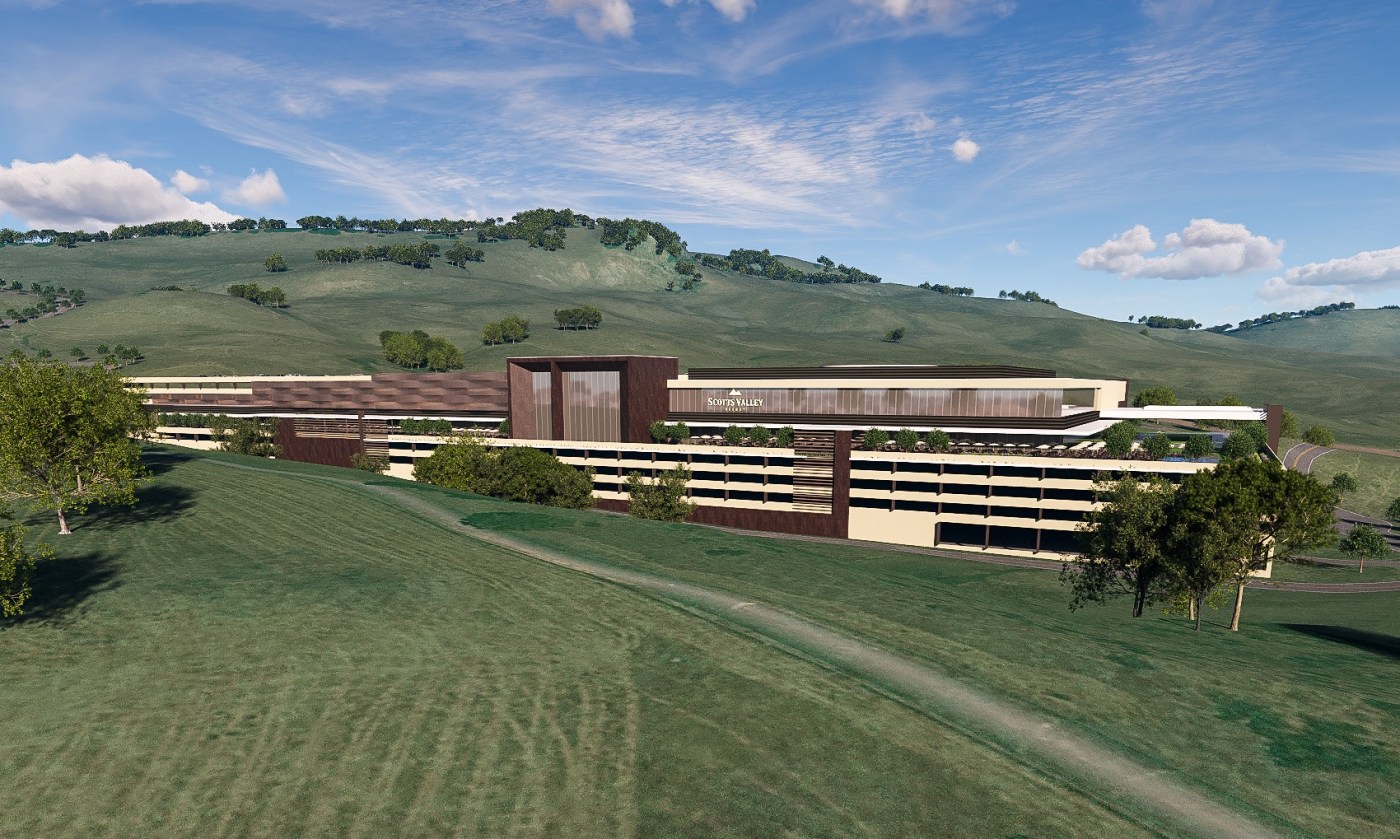
The Scotts Valley Band of Pomo Indians announced last Friday that it has broke ground for sitework and initial tribal government offices in Vallejo.
Related Articles
East Bay apartment deal would preserve affordable housing for residents
Antioch to draft ordinance in effort to support affordable housing
East Bay apartment complex bought in deal that could add upgrades
Menlo Park opens bidding for downtown affordable housing project
Berkeley’s Homeless Response Team trying to ‘keep the lights on’ while improving
According to Patrick Bergin with Scotts Valley, the groundbreaking began on Thursday afternoon and the offices will be located on the tribe’s trust land located at 200 Columbus Parkway. The tribe is looking to develop a 400,000 square-foot casino in Vallejo at that same site. According to Bergin, the staking was begun by laborers on Thursday.
The project includes the construction of 24 single-family residences, a tribal administration building, parking garage and a 45-acre biological preserve area on a 160-acre property located within and adjacent to the city boundary in Solano County, near the intersection of Interstate 80 and Highway 37. The casino facility, at a cost of $700 million, would be open 24 hours a day, seven days a week.
“This groundbreaking is profoundly meaningful for our Tribe as we work to develop the homeland that we struggled for generations to achieve,” said Scotts Valley Tribal Chairman Shawn Davis. “Our ancestors and the memory of their sacrifices are with us as we begin building a brighter future on our sovereign land here in Vallejo. This progress demonstrates that we will not be deterred by falsehoods or attempted obstruction by a few existing casino operators who are more worried about a little competition than helping local residents thrive.”
The property off of Columbus Parkway is the planned location of the new Scotts Valley Casino in Vallejo. (Chris Riley/Times-Herald)
The Scotts Valley tribe claims that studies conducted for the Bureau of Indian Affairs found that project would employ thousands of existing Vallejo and Solano County residents and provide a massive boost to the local economy. The tribe is now working to secure federal gaming authorization and the current construction does not include the casino phase.
According to Bergin, once the gaming eligibility is reinstated, the tribe will begin construction of the casino, although he said due to litigation a starting date is unclear at this time. Bergin said that currently litigation is at the very end of briefing and a final reply is due by Friday, Sept. 26.
As the Tribe moves forward, it talked Friday about how it is committed to collaborating with the city of Vallejo to ensure the successful development of the land.
“We look forward to working closely with the city of Vallejo as we build a vibrant, sustainable future for our Tribe and our neighbors,” Davis said. “These tribal offices will provide a foundation to build greater opportunity and preserve our culture for future generations. We deeply appreciate our connection with Vallejo, and we’ll continue collaborating to benefit the entire Vallejo community.”
Not everyone shares Scotts Valley’s enthusiasm for the casino. A hearing is expected in October as Yocha Dehe Wintun Nation shares developments in the fight to keep Scotts Valley out of Vallejo with claims that is has no ancestral roots in Vallejo.
“The Department of Interior’s January decision to give our ancestral lands was deeply painful to us and our entire tribe,” Chairman of the Yocha Dehe Wintun Nation, Anthony Roberts said last week. “It was also wrong legally, procedurally and morally. Notably this was not the first time Scotts Valley has attempted to shortcut the process and the rules. During the first and second Obama administrations and the first Trump administration, property rejected their camps to claim land outside their ancestral territories.”
Roberts said in his eyes the biggest of the problems with the decision is the claim that one of Scotts Valley’s ancestors — Chief Shuk Augustine, who was leader of the Pomos until he died in 1903 — previously lived in Vallejo and used the land. The Yocha Dehe Wintun Nation says this claim is false and that Augustine never lived in Vallejo.
In August the Yocha Dehe Wintun Nation and the Kletsel Dehe Wintun Nation filed an amicus brief in the in the case of Scotts Valley Band of Pomo Indians v. Douglas Burgum. According to Adams, this brief as well as others are currently being looked at.
Adams didn’t say there was an exact date yet due to many things in motion, but that he believed that there could be a hearing in Washington D.C. “sometime in late October.’
“That’s up to Judge (Trevor) McFadden (presiding over the case),” Adams said. “But you can bet that we’ll be present when that takes place.”